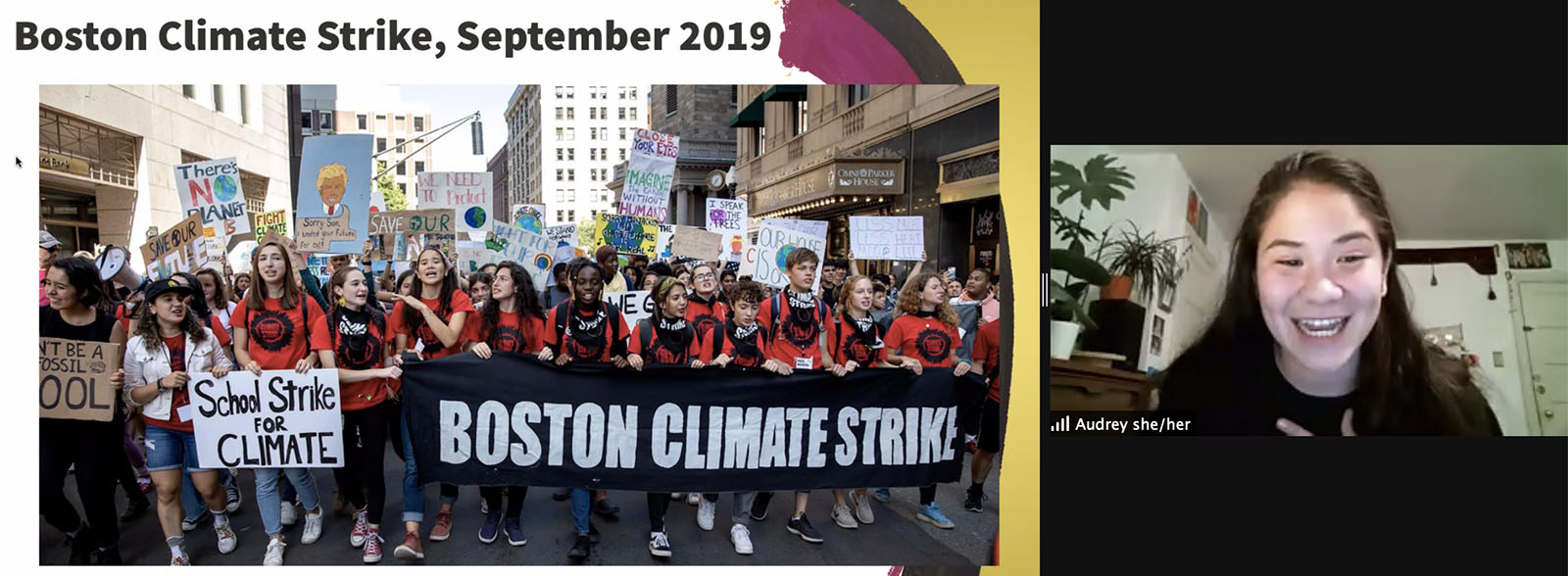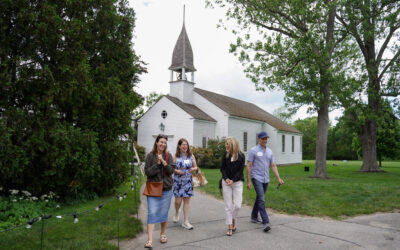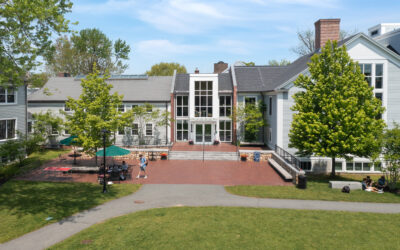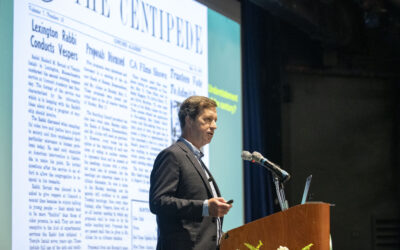
Advocacy was the topic of this year’s Environmental Symposium, a one-semester evening course open to all Concord Academy students and taught by science teacher Gretchen Roorbach. This lecture series offers students an opportunity to learn from professional environmental scientists. All CA students, faculty, and staff were invited to attend the presentations by representatives of organizations such as the Appalachian Mountain Club and OARS, a nonprofit whose mission is to protect, improve, and preserve Concord’s local Assabet, Sudbury, and Concord Rivers.
On January 14, the speaker in the final lecture in the three-part series was none other than recent CA graduate Audrey Lin ’19, who walked students through the advocacy approach of the Sunrise Movement, organized by young people to stop climate change and create millions of good-paying jobs in the process. During a Zoom meeting open to all CA students and adults, she reminisced a bit about favorite Stu-Fac meals and got participants engaged in breakout rooms to discuss what motivates them to fight for change. “I feel grounded in fighting for the people in my life,” she said.
Lin spoke to several dozen members of the CA community about her own path into activism—a journey that began while she was a student at Concord Academy. Lin said she first felt called to get involved in the 2016 Women’s March on Washington, as a CA sophomore. “I got on a bus in the middle of the night in Watertown Square, with my mom,” she said. “We stood outside for 11 hours, and it was so empowering to see that stage filled with community organizers.” That experience opened her eyes to how interrelated issues relating to climate and social justice are.
Lin’s interest in addressing the climate crisis grew as she took science classes at CA and spent a semester away at the Mountain School during her junior year. But it was through an introduction from a family friend that she became directly involved in the Sunrise Movement. Soon she was finding community in advocacy and showing up for phone banks for progressive candidates who were facing tight elections in the 2018 midterms. She also had the opportunity to speak to U.S. Congressman Jim McGovern, who represents Massachusetts’ second congressional district, and she saw her effort rewarded when he pledged his support for creating a select committee for Green New Deal legislation.
After showing a Sunrise Movement video similar to one that had inspired her, Lin spoke about what led her to increase her involvement. It took some time before she felt called into a leadership role, she said, and support from others in the movement made that possible. During May of her senior year, Lin began planning the 2019 Boston Climate strike that took place that September, which a number of CA community members attended.
“I learned so much by doing that,” Lin said. “The entire team was all under the age of 20. Teenagers did all of the work.” Acknowledging that some adults had expressed doubts about young people’s ability to organize, Lin suggested that proving that they could only increased her motivation to figure out the logistics to stage a successful event. “I’ve come to love taking ownership and taking on the identity of being a teenage organizer,” she said.
For the last year, Lin has worked full time with the Sunrise Movement, supporting middle and high schoolers in getting involved in or starting their own local hubs. Before the pandemic, she experimented with training teens (including a few familiar faces from CA) to take action in their own communities. Now that most activism is happening online, and without elections on the immediate horizon, she is encouraging young people to focus on training so that they will be prepared to take action when the time comes.
A decentralized mass movement, the Sunrise Movement was begun around five years ago by young people who had worked for causes ranging from divestment to renewable energy, but who felt that doing that work in isolation wasn’t impactful enough and that a different approach to organizing would allow them to do more to address the climate crisis. Lin walked her audience through Sunrise’s theory of change, which requires people power (an active base of public support, galvanized by the moral authority of teenagers advocating for their future), political power (enthusiastic support from public figures and the decision makers), and people’s alignment (cohesion around a vision of how government and society should function).
In such politically charged times — Lin spoke with her CA audience less than two weeks after the Capitol riot of January 6 — that last element of the theory provoked some questions from CA students and adults. Lin described the additional training in safety and de-escalation that Sunrise had been conducting. And she emphasized the importance of working both out in the streets and behind the scenes with elected officials to achieve the movement’s goals.
Recognizing and capitalizing on the broad well of support for the climate fight was one of Lin’s central messages. “The climate crisis is an incredibly intersectional issue,” she said. “It intersects with every type of oppression that exists in our society. That’s why it’s so important that we’re making partnerships with people in our communities and on the ground, and standing with groups that share similar values.”
Asked how she proceeds when her efforts to address an urgent crisis of such immense proportions are still being met with apathy, and in many cases opposition, Lin shared a tool that has helped her understand the spectrum of support that is actually needed for movement’s such as Sunrise’s to succeed. She said that she takes heart from research from Erica Chenoweth, an American political scientist at Harvard University, which suggests that if only 3.5 of the U.S. population actively engages in nonviolent movements, those movements have not yet failed to bring about change. “We don’t need everyone to win,” Lin told her audience. “We just need people who believe that climate change is real and haven’t done anything about it to be called into taking political action.”


